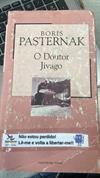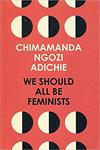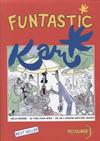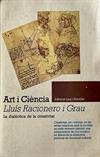
The Yankee Girl: A Korean Girl's Journey to Find Herself
20 journalers for this copy...
I have read several good books lately dealing with moving between cultures (Inheritance of Loss by Kiran Desai and The Namesake by Jhumpa Lahiri) but was especially interested in this book as the author was learning to adjust to MY CITY! I was also interested in culture clash from the view point of a young person.
I found this book to be a quick read. It was one of those books that I stayed up late at night to finish in one day--well, I did stay up past midnight reading, so I suppose it technically took two days to read.
From the back:
Yuna Park leads her life like no other teenager. "Identified" as Korean, she grows up in America for ten years. Then one day, her parents break the news of going back to Korea-all because of Dad's job. The extremely traditional way her family lives, the strict Korean education, and Koreans' reactions to Yuna's American childhood surprise her, but she gradually adjusts by abandoning her "American" past.
Six years pass in Korea. Yuna Park is already more Korean than American. But her father again surprises the family with the news of moving back to America, where Yuna grew up....Yuna once again feels a different culture shock...
In this tale, Yuna shows the reader how adjusting to one society starts from finding ones true self...
My cross cultural stories:
**Being an American, my family is no stranger to immigration and cross cultural issues. When I was growing up, stories were told about when my German Lutheran grandmother wanted to wed my Irish Catholic grandfather in Boston in the 1920s. At that time they had to elope and then they faced the disapproval of their families. Experiences from my lifetime are listed below:
1. My daughter recently married a young man from Singapore (we think he is a wonderful guy). On their wedding day they blended American and Singapore customs beautifully. They went to live in Singapore for about a year after they were married before they moved to Boston. I'm sure part of what made the adjustment to Singapore easier for my daughter was that she had supportive in-laws, most of whom had lived in the US at some point in their lives-especially during their university years. (Note to booklovers-Singapore has lots of Bookcrossers and great bookstores!) My new son in-law fits perfectly into our family, but I still try to do things to make him feel like this is home, such as offering to add a favorite Singapore food dish to our family holiday traditions. I think that often the women in the family are the "keepers of tradition" and I think it is important to keep some of his Singapore traditions here in the US.
2. When I was a university student I spent a half year in Salzburg, Austria. The hardest adjustment was the language, especially at first. One example of how a small change in behavior made it easier to fit in: At that time students dressed with much more fashion in Salzburg than at US universities and it took me a while to realize that I needed to change how I dressed to make more friends. Apparently I looked too "American". I think that not adjusting to local custom in things such as dress can send a message that you feel separate from the local people.
3. My brother is an oil executive and he and his wife have raised their family in Cameroon and now the Netherlands. They met some wonderful people in Cameroon, but they had a lot of trouble adjusting to life there. One of the things that made it hard for them there was the cultural gulf between rich and poor. My sister in-law was very uncomfortable with the idea of servants but she had to get them because that was an important part of the economy there. The prevelance of disease was very hard on my sister in-law who got malaria. They had to have a lot of security while living there and that was stifling for Americans who are used to freedom of movement. They ended up spending almost all their time with the expat community. After moving from Cameroon to the Netherlands the children felt so free when they could just hop on their bicycles to go places without any security worries. His children have not lived in the US since they were pre-school age, but have gone to the American Schools whereever they have lived. The oldest will be coming to the US for college next year and I hope the culture shock is not hard for her. (She was born deaf but was one of the first to get a cochlear implant and can communicate very naturally. She was on the school swim team (she was captain) and they travelled to all the other American schools in Europe for swim meets so she has socialized with all those American kids too. She has a group of friends in the US her age who also have cochlear implants and they meet every summer in New York so I think she has had plenty of US experiences to prepare her for college life here.)
4. The school district in which I teach has recently had a surge of new students from other countries. (Previously we had very little diversity in our suburban school district.) The biggest group of new students are from Somalia-many relocated from refugee camps in Kenya, but there are also new students from 23 other countries in my school. Since my classes are now full of students who were not born in the US, I am trying to learn how I can best be sensitive to their needs. Some have never encountered diversity before and are having some of the same struggles with it as the Korean girl in the book. Today we had a culture clash in my class between a boy who recently moved from Greece and a boy who is from India. One of these children made a very insensitive remark about one of the other child's religious holidays. I am on the school district's multicultural diversity committee and we are working to educate our teachers about cultural issues-especially about the culture of our Islamic students so that we can prevent misunderstandings.
Bookring Guidelines:
Try not to keep the book for more than a month. It is a quick read so hopefully this won't be a problem. With a bookring this long we will need to keep it moving! When you are ready to pass the book on to the next person, PM them and ask for their address. If you don't get a reply from the next person in a reasonable time you should skip them. (But let me know so I can change the order.) I will do all I can to facilitate a good bookring experience for everyone.
I'd love for this book journal to be a dialog among the bookring members on the topic of the book.
For example:
•Tell your own cross cultural stories.
• After reading this book, would you move your children between cultures while they were still in school?
•What are some things that can help prepare a child (or person) for a move like this?
•If you have moved to another country, did you have any of the same experiences as the author?
•Would you change your behavior or morals to fit in with another culture?
Order: (Click on a name to link to their bookshelf.)
Note: The order may change if new members join.
Tenneh-US
Caridad-US
Chocolatefishy-US
FeralReader-US
ThanksMom-US
LyzzyBee-UK
OpheliaPhillips-UK
rapturina-Netherlands
penelopewanders-Switzerland
oisec-Germany
LeishaCamden-Norway
Tarna-Finland
CandyDarling-Finland
Katayoun-Iran
Jessibud-Canada
Azuki-US
istop4books-US
Bartonz-US
BooksAndJava-US
Bluestocking88-US
nynjagrrrl-US <-----Book is here!
LotusFlower77-Canada
Tashe-US (OH)
Supertalya-US APO address (Korea)
LadyKnightNiko-US (OH)
fairydustwings-US (OH)
Back to Thursday5-US (OH)
**I told the author about the bookring and she is really excited about it. I am going to put a post card in the book from the city where the author (and I) live. I think it would be nice if each person wrote their state or country on it and then I could send the postcard to the author so she can have a souvenir of where the book has traveled.
Web Links of Interest:
History of Education in Korea: http://www.asianinfo.org/asianinfo/korea/education.htm
Schools in Korea: http://english.gangnam.go.kr/residency/education/education.htm
We have adopted a (then) 5 1/2 yr. old boy from China and are currently in process to adopt a 5 yr old boy from Guatemala. We are also hoping to adopt from either India or Ethiopia in the future. So anything about adjusting to a new culture is very interesting to me.
I found this book to be a fast read (read it in 1 day) and I loved it. I will definitely be buying a copy for my permanent library! It made me think about a lot of things that a child has to adjust to in a new culture. I also liked the parts of the book where Yuna learns about herself. I will hope my kids read it when they are older and enjoy it as much as I did.
Released 17 yrs ago (3/19/2007 UTC) at Via Mail in -- Mail or by hand-rings, RABCK, meetings, Nebraska USA
WILD RELEASE NOTES:
on it's way to Caridad
If anything, I believe the message of this story is not to be so judgemental or fearful of others who are not like you. Diversity makes life much more interesting.
Will read right away.
I enjoyed this story and identified with it rather easily. Despite the fact that I did not live overseas until I was almost 17, we moved many times during my childhood due to my father's career. Moving from "upstate" New York to the Deep South to Southern California and then rural Northern California presented some interesting cultural challenges for my sister and me. Like the character Yuna Park, our lives are definitely enriched by these early experiences, despite some culture shock at times.
I have told my own children stories of being in the middle of the American Civil Rights Movement as a child; life in racially-segregated communities and school integration; and what it was like to grow up during the Cold War with the Soviet Union. We all owe it to ourselves and to each other to take every opportunity to learn, understand, and appreciate the diversity of the human world.
Kyusun Chung has done an impressive job of conveying the thoughts, feelings, and impressions of an international childhood.
Best wishes, Kyusun, in your next phase of life and in your writing!
This book will be off in the mail to ThanksMom today.
Our family faces some of the same challenges in a small way. Being one of a few hispanics in Pennsylvania, especially since we moved from New Mexico and hope to get back West, we had some of the same "fitting in" adjustments.
Book is off to the UK today.
More soon...
I am not nearly as cross-cultural as a lot of people on this list (however I love reading books about cross-cultural experiences). I dated an American guy for a while and found all sorts of interesting language differences - I also worked for an American company for a long time, while living in England, and particularly enjoyed the challenge of interacting with people from New England and the South at the same events - often we think that the inhabitants of one country are all the same...
We moved to Birmingham 2 years ago after years in London and actually there is a big cultural difference to adjust to; I love living in a relaxed and multicultural environment where most people are friendly to each other and we all live and let live, while absorbing bits of each other's cultures into our lives.
Well - musings rather than experiences. I hope you're going to print out all these posts and give them to the author!
Thanks for the chance to read this. I just PM'd the next reader for her address and will send it on as soon as I have it.
Released 16 yrs ago (7/7/2007 UTC) at A Bookcrosser in A BookCrosser, A Bookcrossing member -- Controlled Releases
WILD RELEASE NOTES:
Posting to the next recipient today!
To be honest, I wasn't overly impressed with this book. I mean, it was kind of interesting reading about her experiences jumping back and forth between the States and Korea (told as fiction based on own experiences, I presume), although everything seemed to be glossed over a bit for me anyway. And the writing wasn't so great.
I think so much of it stemmed from being a teenager and the social pressures to conform that come with that stage in life - not purely that she was a little foreign girl. And she certainly had it rough having to adjust to very different cultures so often, and the language struggles.
But I'm not so convinced by this idea of having to change the way you dress to be accepted into a new country - that sounds more teenagerish to me than anything else. You shouldn't have to give up your cultural, and even individual identity. I know over here in the UK we've recently had a bit in the news about Muslim women defending their right to wear the veil.
I've no experience of having to survive in another culture as a child or teenager. And as I know living abroad really makes you learn about who you are as a person, I can imagine this is especially tough when you're growing up, and you're still growing into yourself in a sense. I lived abroad in Sweden for three years, I did struggle with the language when I was first there, so I can sympathise with the outsider feelings because you can't communicate as well as you'd like. But I had a different perspective because I was older and identified with myself as being British, and that is what I will always be. I taught English at a couple of evening class schools, and I did talk to some other language teachers there who had moved over, in some cases, decades ago from other countries. They felt that they never felt 100 percent that they belonged there, although having lived abroad for so long, when they went home to visit family, they also felt as though they didn't belong there either.
Anyway, thank you for setting up the bookring - it's certainly been productive in that we're getting long journal entries and getting some kind of discussion going! I'm just sorry I didn't like it as much as everyone else!
I've got rapturina's address, so I will get it in the post soon.
As for my personal cross-cultural stories, where to start? Crossing cultures is my business, I am getting my MA in Intercultural Communication in two weeks and have just finished my thesis about immigration and adaptation issues. :D
I was born and raised in the Netherlands, but I have also lived in the United States (California), Australia and Finland, so I have quite some experience with the issues brought up in this book. I also know a lot of people who have lived in other countries for extended periods of time, and it''s one of my favourite topics to talk about. :D
To answer the question posed by the original poster, yes, I would move a child from country to country like that, because I firmly believe that living in different countries is the best way to gain some perspective and become more of a global citizen. It is *so* important to realize that different people have different perspectives of the world, mostly depending on where and when you were born, and most people don''t really understand this until they have lived in another country themselves, or have come in contact with people from other countries a lot. Immigration is a very hot issue in the Netherlands at the moment and it bothers me to no end that a lot of people are incredibly close-minded about people from other cultures; they just don''t understand that different people do things differently and that, generally, there is no right and no wrong way to go about things, just different approaches. To that extent I think books like this one are very important to be read by people who don''t get the chance to live somewhere else for a while, because it offers a bit of that multicultural perspective that people really need to have in this day and age, with the world becoming more interconnected by the minute.
Alright, getting off the soapbox now. :D Thanks for the ring, Thursday5, I enjoyed reading this book and contemplating the issues it touches upon!
Sending this off to Penelopewanders today.
 penelopewanders
penelopewanders from Saint-Loup-des Vignes, Centre France on Tuesday, August 21, 2007
from Saint-Loup-des Vignes, Centre France on Tuesday, August 21, 2007
There are a few rings in the pile, but as this is so short I've already started it and should finish either today or tomorrow, although I've a lot of things to catch up with. Likewise the discussion here... too many e-mails to read all the posts just now, but I look forward to reading them all closely soon, and putting in my own two cents. Someone recently sent me an article about third culture kids... so I discovered there's an official (new?) term for people like me and my children.
 penelopewanders
penelopewanders at BookRing in ☑ 'Controlled Release' > Country > Province > City, .---controlled release---. Switzerland on Thursday, August 30, 2007
at BookRing in ☑ 'Controlled Release' > Country > Province > City, .---controlled release---. Switzerland on Thursday, August 30, 2007
Released 16 yrs ago (8/30/2007 UTC) at BookRing in ☑ 'Controlled Release' > Country > Province > City, .---controlled release---. Switzerland
WILD RELEASE NOTES:
This ring is now on its way to Norway. I expect it would appeal more to teenagers than it did to me, as the voice was decidedly "teenagerish". I was glad for the opportunity to read this, thanks so much for making it available. I've included a postcard of Switzerland to send on to the author.
After reading this book, would I move my hypothetical children between cultures while they were still in school?
Impossible to answer, IMO. It would depend on so many things. The child's personality – some kids cope fine with changes and others are traumatized by them. The family situation – how strong is the family unit and its ability to 'cushion' its members from culture shock. Also, if I had more than one child I would be more confident about making such a change, especially if they were close in age. What would the circumstances be in the new country as compared to the old? School age children, but how old? Making new friends is normally easy as pie for a six year old, but may be very difficult for someone 6-7 years older. I think having a cross-cultural background can be a strength and it normally does build character, but you can also end up feeling very lonely and as if you don't belong anywhere. I would definitely put a lot of thought into such a decision, I don't think it's one that can or should be taken lightly.
What can to do help prepare a child (or person) for a move like this?
The more you know about the country you're moving to, the better. And it may be the little things, that don’t sound important at all, that may determine how you manage to settle down. I went to university with an American girl who at first had such a hard time fitting in here in this country. She was of Norwegian ancestry, but she had never been here before she moved here to live for three years, and she didn't know the language. She felt that everything was so strange and different, she was really homesick and felt that she could never feel at home here. But then one day she discovered a store in downtown Oslo that sold Dr Pepper! LOL! Suddenly she felt like she'd found a little piece of home, and after that she started seeing the similarities rather than the differences, and she ended up having a really good time during her stay here. :-) Be prepared, and try to keep an open mind – that's probably the two main things one needs to do.
Would I change my behavior or morals to fit in with another culture?
Within limits. My basic morals, no. I don't think the fundamentals of right and wrong can or should change from culture to culture – we are all human after all. It's more the social standards that change from country to country. I remember a recent discussion on the Chit Chat forum about taking one's outdoor shoes off when coming into a house. :-D This is not the custom in some countries, the US for instance. But in my country it's the norm. Someone talked about – as an example – how rude and mean it would be to force a sick old lady to sit down and take off her shoes, and their grandma would rather stay home than have to be subjected to that at someone's house. Well, my grandma, who's almost 91, has a heart condition and gets dizzy easily would never dream of clomping into other people's houses – or even her own – with her outdoor shoes on. To her, that would be rude and mean. When it comes to things like this, ie social codes and behavior related to them, I would expect anyone & everyone to if not change then adjust themselves according to where in the world they are. When in Rome … ;-) You can change your behavior, and you should do so where necessary in order to fit in to some degree. You don't need to blend in, but you do need to fit in – at least IMO – for your own good as well, because our species is a social animal and we all need to feel accepted and part of something. But you shouldn't change who you are – in fact I doubt whether you even can do that.
As for the book itself, it was an interesting read, I'm glad I got the chance to read it. It's thought provoking and it deals with some important issues – more and more important in today's world. But I'm not sure I see where some of the other readers are coming from when they think it's such a wonderful book etc – not just here but also on amazon where I read some reviews of the book. It's not really well written … it's very obvious that the author is not only young but also very inexperienced as a writer. It also should have been much more thoroughly edited and proof read. There are a number of obvious mistakes like 'later' where it should say 'after', 'we arrived at Korea', etc. These should have been weeded out, but it's the publisher's fault that this hasn’t been done, not the author's. But for a purist like me it does get a little annoying. ;-)
I also felt like some other readers that the book kind of glosses over a lot in the story. Again, an inexperienced writer. The action moves a little too fast and you don't really get the chance to ... immerse yourself in the story, if I may be excused a cliché. :-) And sometimes I got a little confused by time obviously passing without really getting a sense of it ('I sat down to dinner. Five months later I was still learning such and such ...' – not a direct quote ;-) but you get my drift). A few times I was also scratching my head thinking that something couldn't be very well thought out in the plot – like when she says it like it's something peculiar that 'even though' her little brother was the youngest child, he was the one who had handled the moves back and forth best. IMO it's self-evident that he would be. All of these things are very typical of very young writers who need some more years of writing experience before they really know what they're doing. This book was obviously published because the story Chung has to tell is so special. And as such I think it's a very worthwhile effort. I think this is a book a lot of people could benefit from reading – children and teens moving between cultures would find it comforting to read about someone else having experiences like theirs, and parents of such children would gain some insight into what their kids may be going through. And I would also like to say, kudos to this young woman who has turned what could have been very traumatic experiences into a strength of character which I'm sure she'll benefit from for the rest of her life.
Thank you Thursday5 for sharing this special book with all of us, and thank you to all the participants for keeping the ring moving. I'm sure we will all have a great time reading the future JEs on this book. :-) I've already gotten Tarna's address so the book will be on its way again soon. :-)
 LeishaCamden
LeishaCamden at mail in By mail, A Bookring -- Controlled Releases on Thursday, October 11, 2007
at mail in By mail, A Bookring -- Controlled Releases on Thursday, October 11, 2007
Released 16 yrs ago (10/11/2007 UTC) at mail in By mail, A Bookring -- Controlled Releases
WILD RELEASE NOTES:
The book is on its way to Tarna in Finland. Hope it makes the trip safely. :-) Thank you again, everyone, and happy reading, Tarna!! :-)
The theme of the book is interesting. But the plot is somehow too simplified. I’ve interviewed Finnish Canadians about their experiences and I must say that Yuna had it pretty easy compared to many if not most of them. Even though one might assume that it would be much easier to be European than Asian in North America or being American in South Korea. Of course, those Finns left the Old Country in the 1950s, they didn’t know the language, and Canada was not considered to be multicultural back then. And people didn’t really know much, if anything, about the country they were moving to. It is easier to get info nowadays, thanks to media.
I was wondering about Yuna being so American in the beginning of the book. I thought her parents would have brought her up to be more Korean. But her parents, at least the father, were well-educated and knew the language, maybe they didn’t care to teach her the Korean culture. I still wonder, though. Settling in the Korean culture seemed also easy enough. Which shows, in my opinion, that she was brought up in Korean way, after all. No western child would have adapted a new culture so eagerly had she been against the moving. Like some other journalers, I think most of Yuna’s problems in the States were due to her being teenager more than anything else. I think this book was more about a young girl finding herself than her acculturating. However, I find it great that Kyusun Chung wrote about things she knows. If she didn’t have bigger problems in integrating into Korean and American cultures—or if she doesn’t (want to?) remember them—why should she imagine them?
Now, what were the questions? Ah yes, cross cultural stories. My story begins at home. Both my parents were (or are if you like) refugees. They spent their childhood and youth in the part of Karelia that has been behind the Soviet or Russian border since the WWII. They never talked much about it but neither of my grandmothers liked it here. My maternal grandma was always saying that she’s not like her neighbors. And my paternal grandma left Finland for Canada years before I was born. She had lost both her husband and her home in the war, her only son married a girl she didn’t like too much and made her grandmother—and she was too young for that, only in her early forties! Besides, these people here were so dull... Their generation had hard to cope with their losses, and they weren’t always treated nicely, to tell you the truth. They were often regarded as aliens or, as a friend of mine once put it, of different race than the ‘real’ Finns. Well, I think that’s enough of me and my background.
About moving a child to a new culture... I wouldn’t do it, not against her or his will. I don’t like manipulation but in this case I would at least try to make my child to believe they want to experience a new culture. It’s not right, I know, but still.
I’ve heard too many sad stories. There are more recent ones than this (the latest being from last week), but I’m going to tell it anyway. When I was interviewing those Finnish Canadians, I learned that people, no matter their age, have great difficulties in acculturating if they dodn’t want to move—or even if they were never asked because they were too young to express their opinion. For instance, these two sisters were quite young when they left for Canada with their parents. The older was about two and the younger still a baby, some six months old. Their toddler age was happy. They lived in a Finnish community and didn’t know any English when they went to school. But they were fast learners and they said they were both real ‘two goody-shoes’ at school. At some point they did, however, realize they were somehow different than other girls, the ‘real Canadians’ as they called them. And they felt alienated until the younger sister was 18 and they visited Finland for the first time. They met their grandparents, aunts, uncles, cousins, and their whole Finnish family. They said, “This is where we come from. This is us!” Yet they are true Canadians, but hyphenated Canadians. “I’m a Finlander and proud of it”, the younger one said. But some 5—10 years they both had really lousy time. And they never had even said they didn’t want to leave for Canada, obviously.
Oops! Edit half an hour later. I forgot there was one more question about changing one’s behavior or morals to fit in with a new culture. You have to change something if you want to integrate. But you shouldn’t lose everything from your native culture either. Take the best parts from both of them, that’s the best policy. And that’s what I would at least try to do. Changing one’s morals is another thing. It is a tricky question. It is easy to say I wouldn’t change anything in terms of right and wrong but what if laws in my new homeland say otherwise? That’s the biggest problem in immigration today, I’d say. My answer is, it depends. I really don’t know.
Once again, I’ve made such a long JE. But you asked for it, Thursday5. :) Anyway, back to the book. It wasn’t quite what I thought it would be but I really liked it. The glimpses of Korean culture were truly interesting. I hope Kyusun Chung writes more about it sometimes. As I said in the beginning, I liked the language too. This is, after all, a teenage novel.
Thanks for sharing, Thursday5! This was fun.
***
Next in line is CandyDarling. I’ve PMd her twice to make sure I’ve got the right address. So many Finnish BCers have moved this fall that I thought it’s better to check. I’ll mail the book as soon as I hear from her.
ETA Nov. 7, 2007. My second PM got through and CandyDarling replied yesterday. Mailed the book today. The post office clerk promised it would leave today. Candy should get it tomorrow or the day after that.
As for the cultural conflicts, I feel a lot of it was part of being a teenager. I could relate very well to Yuna's problems with clothes and trying to fit in, as I had very similar experiences as a teen, even though I went to school in the neighbourhood where I had lived all my life. I still remember the exhilaration I felt when I bought my first leather jacket with my very own money. For the first time, I had the courage to wear what I wanted, as I had spent the previous three years doing my best to make sure none of my classmates had any reason to talk behind my back.
The racism between Koreans and Japanese was a really interesting aspect to this story, and I was glad to learn about it. I was just disappointed with the simplistic resolution to the predjudice Yuna felt towards the Japanese, somehow it didn't seem realistic that after years of thinking the Japanese are evil, suddenly she has an epiphany and realises they're people too. I'm much more familiar with Japanese culture, and it was interesting to notice how many similarities there are between Japan and Korea.
Here are my answers to Thursday5's questions:
•After reading this book, would you move your children between cultures while they were still in school?
I have never wanted to move my children between cultures, because I hope to live the rest of my life in Finland (I have never lived anywhere else), but if I had a good reason to move to another country, I would do it.
•What are some things that can help prepare a child (or person) for a move like this?
I think it depends on the person, for some people it's easier to adapt than for others. If I knew of the move in advance, I'd hire a teacher to teach my kids the language of the country where we are moving.
•Would you change your behavior or morals to fit in with another culture?
I would change my behaviour in insignificant matters, but I would not change my morals. I will adjust my morals if I see fit, but I've pretty much formed my worldview, so I don't think I would want to make any significant changes. I would also do my best to teach my children my morals, not the morals of the society surrounding us. For example, if I had to move to a very conservative area, I would still teach my liberal views to my children. ;)
Thank you Thursday5 for starting this ring! I pm'd Katayoun, but she asked to be skipped. I have Jessibud's address, and will mail the book to her asap.
EDIT: Sent the book to Jessibud on Dec 7th.
I love that people have been adding postcards from their countries, in addition to the one you've included, Thursday5. I will do likewise.
All in all, it was a good story. To answer some of your questions,
- Tell your own cross cultural stories.
Well, my own family has come from various parts of the globe. On my mom's side, her parents were born in Romania and Poland and escaped to Canada after the first World War. They met and married here and my mom and her sister were born here. While most of my grandmother's siblings managed to escape the Holocaust, her parents and youngest sister did not, and that always lay heavy in the air in our family. One of my grandmother's sisters married a man from South America and they ended up in Mexico so there is an entire branch of my family who has lived there for generations. I have met them and they spoke English very well, but it always seemed exotic to me that their first language was Spanish, not English!
My dad's parents were actually both born in the USA (as was my dad and his siblings) but both my grandparents' parents hailed from Russia. My dad and his family moved to Canada when he was a teenager though, for some odd reason, he did not become a Canadian citizen until 1975.
I myself, was born and grew up in Montreal, Quebec and have lived in 4 countries over the years (Canada, USA, Israel and Germany) but I have been back home in Canada since 1980 and it is where I intend to stay. I loved living in different places, and being immersed in new cultures, even when the language was a barrier. In Israel (where I lived for 6 and a half years), I did learn the Hebrew language, enough to be comfortably conversant on a day-to-day level. I also taught English there to both young kids and adults. In Germany, however, it was much more difficult for me to learn the language (I was only there for 10 months). I was living with an American boyfriend at the time (he was working there) and I became close friends with a Japanese girl who was married to a German guy. We spent a lot of time together and always marvelled at how *international* we were! The boyfriend is long gone from my life but I am still in touch with my Japanese/German friends!
- After reading this book, would you move your children between cultures while they were still in school?
If the kids were young, yes, definitely. I think that the younger chldren are, the easier it is for them to both learn new languages and to adjust to changes. If a child was close to graduation, the situation could be trickier. I think it would very much have to depend on the situation.
- If you have moved to another country, did you have any of the same experiences as the author?
I was already an adult and on my own when I lived in other countries, and the decisions to do so were mine alone so I cannot make any reasonable comparisons between our experiences.
- Would you change your behavior or morals to fit in with another culture?
My morals, no. I am who I am and I don't think I'd want to change that for anyone. However, because of my interest in different cultures (I do have a degree in sociology, too!), and because I currently happen to live in one of the most multicultural cities in the world (Toronto), I think it is fair to say that I have always been open to learning about people and cultures different from my own. When living overseas, for example, I did learn that there are cultural nuances that govern behaviour in some social situations, that did not necessarily come naturally to me. But I like that! I also teach in a school that has a hugely diverse population, and I am learning from my students and their families more than I ever imagined I would know about other countries and cultures. Just before the holidays, we went around the school, to staff and students, and asked people to write the traditional holiday greeting in their language (and alphabet, where applicable). We posted the chart in the main hall bulletin board and it contained nearly 20 languages! Just in our school!
~~~~~~~~~~~~~~~~~~~~~~~~
Thanks so much, Thursday5, for including me in this bookring. I have added a postcard to the pile, and I have also included 2 special bookmarks that I hope will travel with this book and make their way back to you. I picked these up at a local book fair last September and think they are perfect for this bookring. One is for this book (Coming To Canada - Building a Life in a New Land):
http://www.mapletreepress.com/book.aspx?id=1164
and one is for this site:
http://www.youarespecial.com/servlet/StoreFront
I am just awaiting address confirmation from Azuki and the book will be on its way
I have a couple of rings to finish up first but look forward to starting this soon.
A nice effort as a first book. Keep it up!
•Tell your own cross cultural stories.
I was surprised at how much my life experience matched Yuna’s. I was born in Chile and came to the States at 10 months of age. I lived here and grew up as 98% American until I was 11 years old, when I returned to Chile and entered 7th grade. My dad was American and we grew up speaking mostly English, but when we returned to Chile, Dad died, my mom went back to speaking Spanish. At school, I never felt that the other girls treated me as an outsider, to the contrary, they were super nice – but there was an anti-American sentiment in the country at that time (early 70’s) and there were two teachers who made the occasional snide remark, and some relatives who spoke negatively about the States, and I took it all very personally. That part was hard. Friendships, food, socializing – those things were great, but I always wanted to come back to the States and at age 22 I did. I married a Chilean and came back to live here. I got questions like, “Are there banks in Chile?” “Are there telephones in Chile?” and a whole lot more. I felt like a fish out of water here in a lot of ways, and for my husband it was harder. When I arrived in Chile I spoke no Spanish, I was totally a native speaker in 18 months. Coming back to the States I thought my English would be good enough, but it was the English of an 11 year old. I had never worked in English (I remember not knowing what "white out" was, my adult vocabulary was limited and my exposure to how the world worked in the States was naive. We had no mentors and so we reinvented the wheel with every new task we undertook, from renting an apartment to going to college. Over the years you realize that home is where you make it, that you will never fit in 100% and there will always be a longing for what you miss of the other country – no matter where you are.
• After reading this book, would you move your children between cultures while they were still in school?
We did. In 1994, we moved back to Chile with 12, 7 and 5 year old boys. It was a temporary move, but at the time we didn’t know this for sure. The boys had very few problems really because everything was a novelty. Yes they missed their friends, but there were new friends to be made and we did make sure that the transition was as painless as possible. This trip broadened their horizons tremendously.
•What are some things that can help prepare a child (or person) for a move like this?
Having exposed the person to foods and people who are different in a non-challenging way. Instead of saying, “we’re going to go eat some exotic Ethiopian food” saying “we’re going to a neat restaurant where they cook the food really well.” Allowing the kids to take plenty of their same language books, music and videos with them. Encouraging them to keep in contact with their old friends, maybe even arranging for trips back ahead of time so there’s something to look forward to. And once there, bending over backwards to make the transition smooth. And for kids that often means wearing the same clothes as everyone else. When my 12-year old left the States, everyone here wore baggy clothes; t-shirts 2 sizes too large and big baggy, long jeans. In Chile, kids were more likely to wear nicely ironed, clean jeans and a polo shirt. Finding the point where their individuality and comfort zone met with other kids’ expectations was difficult but doable. Nobody wants to stand out like a sore thumb in 7th grade, and that was the important part.
•If you have moved to another country, did you have any of the same experiences as the author? Many of my experiences mirrored hers.
•Would you change your behavior or morals to fit in with another culture?
Morals – never. Behaviors? Depends on the behavior. As an adult you too want to fit in, so perhaps you eat dinner at 9 pm, or allow your children to go to parties and hold your breath the whole time they're gone, hoping they remember their values, you might learn to kiss on both cheeks, or hug people -- or like we did here in the States, not to kiss anyone. Those things are relatively easy, and can be done without changing your morals.
Have PM'd next in line to send on.
It's on its way to BooksAndJava
Thanks for the chance to read something that I might not have ever come across otherwise!
Thanks again!










